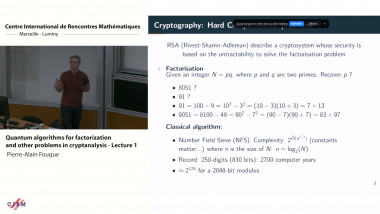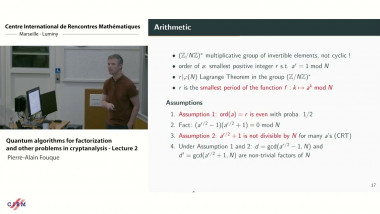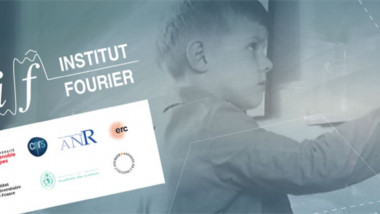
Quantum algorithms for factorization and other problems in cryptanalysis - lecture 1
By Pierre-Alain Fouque

Quantum algorithms for factorization and other problems in cryptanalysis - lecture 2
By Pierre-Alain Fouque

Generative AI and Diffusion Models: a Statistical Physics Analysis (3/3)
By Giulio Biroli

Exploring the High-dimensional Random Landscapes of Data Science (3/3)
By Gérard Ben Arous

Generative AI and Diffusion Models: a Statistical Physics Analysis (2/3)
By Giulio Biroli











